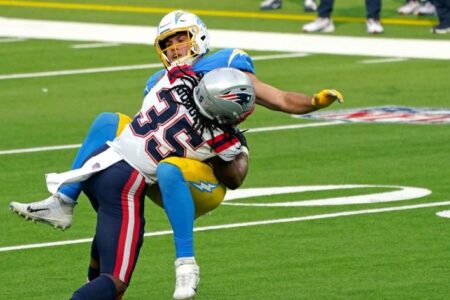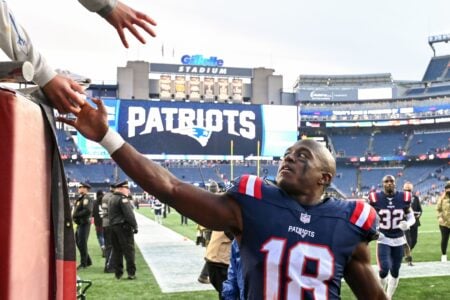primetime
Pro Bowl Player
- Joined
- Jun 15, 2005
- Messages
- 13,627
- Reaction score
- 15,375
From https://www.numberfire.com/nfl/news/4234/do-the-patriots-or-seahawks-have-the-edge-at-special-teams
Hats off to Slater (who's easily one of the best special teamers to ever play), Allen, Gostkowski and the rest of the special teams crew.
The Patriots had, by a significant margin, the best special teams in the NFL this year. They were the only team, too, with a Defensive Special Teams NEP below zero, which means that they actually took points off the board of their opponents as a net result of their defensive special teams. Maybe there is something to that left-footed punter idea.
Their Total Special Teams NEP (the sum of their Offensive and Defensive Special Teams NEPs) was more than 15 points better than the next best team's (Philadelphia's was 48.19). Only two other teams had a Total Special Teams NEP greater than 30: St. Louis (40.50) and Indianapolis (35.15).
Seattle combined to have just an average special teams unit overall but were only a few points from 11th place (Miami's Total Special Teams NEP was 0.96). There's really nothing in the numbers that really narrows the gap, though.
In fact, New England's Total Special Teams NEP of 63.33 is the seventh-best overall score for any team since we started collecting data in 2000. Ahead of them? The 2008 Raiders (74.53), the 2007 Bears (74.39), the 2011 49ers (70.01), the 2001 Bears (68.80), the 2000 Panthers (66.94), and the 2000 Pats (64.85).
As for the defensive side of things, the Pats this year were just one of five teams ever to post a Defensive Special Teams NEP below zero, ranking in the middle of the 2001 Bears (-5.15), the 2002 Pats (-3.90), the 2000 Pats (-0.92), and the 2001 Ravens (-0.12).
Hats off to Slater (who's easily one of the best special teamers to ever play), Allen, Gostkowski and the rest of the special teams crew.


















